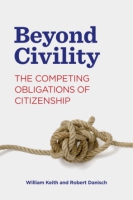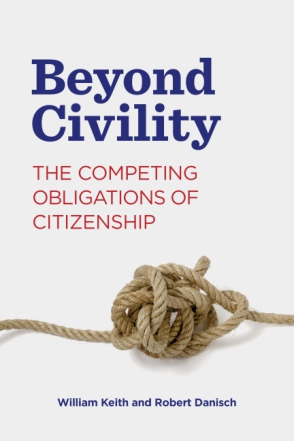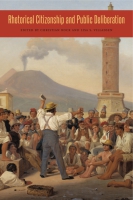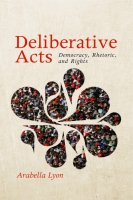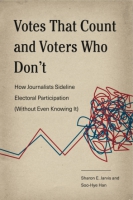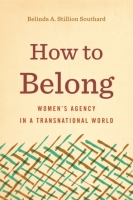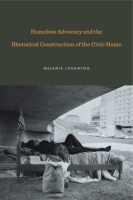Beyond Civility
The Competing Obligations of Citizenship
William Keith and Robert Danisch
“In a much needed and thought-provoking study, William Keith and Robert Danisch examine the concepts of civility and incivility, offering both critique and justification for civility as a norm of political discourse. They reconceive civility as a kind of discourse that can help us solve political problems in a way that is more equal, less conditioned by economic, political, or social power, and more respectful of mutual humanity. This study offers a timely assessment of our broken public sphere.”
- Description
- Reviews
- Bio
- Table of Contents
- Sample Chapters
- Subjects
This book makes a case for understanding civility in a different light. Examining the history of the concept and its basis in communication and political theory, William Keith and Robert Danisch present a clear, robust analysis of civil discourse. Distinguishing it from politeness, they claim that civil argument must be redirected from the goal of political comity to that of building and maintaining relationships of minimal respect in the public sphere. They also take into account how civility enables discrimination, indicating conditions under which uncivil resistance is called for. When viewed as a communication practice for uniting people with differences and making them more equal, civility is transformed from a preferable way of speaking into an essential component of democratic life.
Guarding against uncritical endorsement of civility as well as skepticism, Keith and Danisch show with rigor, nuance, and care that the practice of civil communication is both paradoxical and sorely needed. Beyond Civility is necessary reading for our times.
“In a much needed and thought-provoking study, William Keith and Robert Danisch examine the concepts of civility and incivility, offering both critique and justification for civility as a norm of political discourse. They reconceive civility as a kind of discourse that can help us solve political problems in a way that is more equal, less conditioned by economic, political, or social power, and more respectful of mutual humanity. This study offers a timely assessment of our broken public sphere.”
“One consequence of the current challenges to democracy is reconsideration of democratic institutions, norms, and habits. Beyond Civility is a model for how that can be done. While engaging strong critiques of the concept, Keith and Danisch demonstrate why [civility] remains an important commitment for both political sustainability and progressive change. By focusing on its paradoxical character, they show how civility and incivility negotiate deep problems of relationality. This is a thoughtful study of public communication for this turbulent time.”
“William Keith and Robert Danisch offer a provocative and interesting take on democracy as a ‘wicked problem.’”
“Beyond Civility is a defense of civility and an argument for its centrality to democratic culture. It engages in topics that will be of great interest to rhetorical scholars. The authors’ breakdown of civility into weak/strong/pseudo and the argument stances in the ‘theater’ of public discourse are novel and important.”
“Challenging the regular hand-wringing over a decline of civility in public discourse, William Keith and Robert Danisch take political divisiveness as a given in Beyond Civility: The Competing Obligations of Citizenship.”
William Keith is Professor of Rhetoric at the University of Wisconsin–Milwaukee. He is the author of the award-winning Democracy as Discussion: Civic Education and the American Forum Movement and coauthor of two highly regarded textbooks, The Essential Guide to Rhetoric and Public Speaking: Choices and Responsibility.
Robert Danisch is Associate Professor of Communication Arts at the University of Waterloo. He is the author of two monographs and a popular book on communication practices and the host of the communication skills podcast “Now We’re Talking.”
Acknowledgments
Introduction: Why Civility Matters
1. Civility as a Moral Quandary and a Political Necessity
2. Imagining the Politics of Civility
3. Civility in the Discursive Public Sphere
4. The Structure, Uses, and Limitations of Incivility
5. Strong Civility for Social Justice
Notes
References
Index
Download a PDF sample chapter here: Introduction
Mailing List
Subscribe to our mailing list and be notified about new titles, journals and catalogs.
